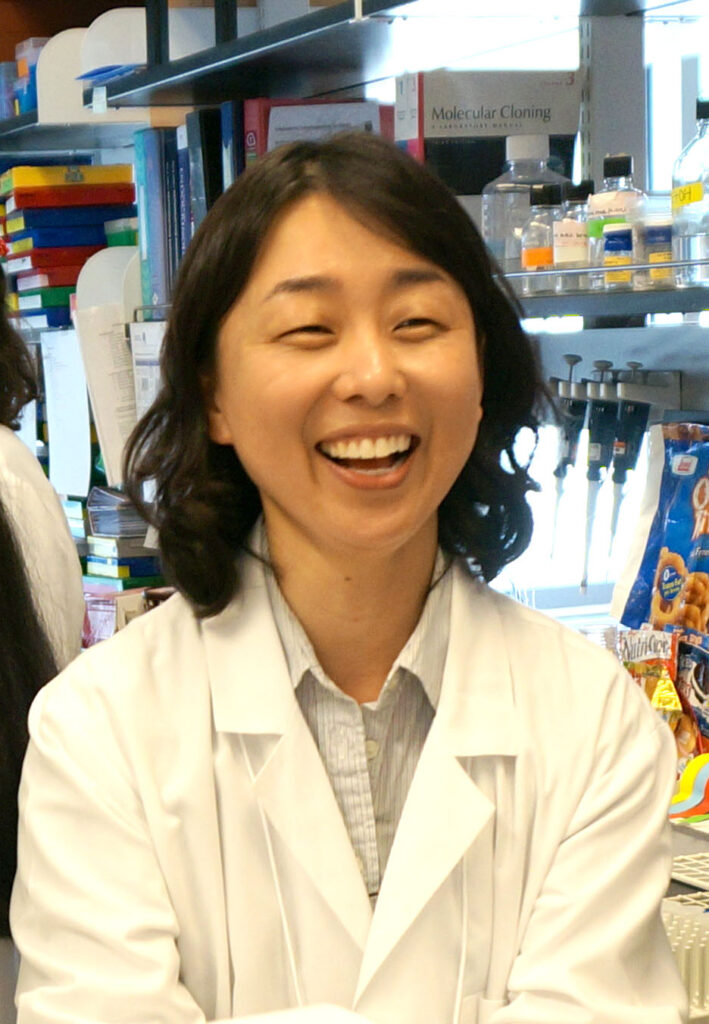Meet Dr. So-Youn Kim
Written by Dr. Yulian Zhao (SSR Diversity Committee) in honor of the Asian American and Pacific islander Heritage Month.
May is Asian American and Pacific islander Heritage Month. The SSR Diversity Committee is participating in this celebration. For this, Dr. Yulian Zhao (member of the SSR Diversity Committee) interviewed Dr. So-Youn Kim, Associate Professor in the Department of Obstetrics and Gynecology at the University of Nebraska Medical Center. Enjoy the reading.
1. What is your current position, and what does it entail?
I am an Associate Professor in the Department of Obstetrics and Gynecology at the University of Nebraska Medical Center (UNMC), affiliated with both the Fred & Pamela Buffett Cancer Center and the Olson Center for Women’s Health, a multi-faceted, comprehensive health center designed around a woman’s needs. I also hold a courtesy appointment in the Department of Biochemistry and Molecular Biology at UNMC and am a member of the Nebraska Center for Women’s Health Research (NCWHR), a state-wide and nationally recognized center of excellence in women’s health research. I am a faculty member teaching in the Cancer Research Graduate Program (CRGP), one of the Ph.D. programs at UNMC, and I also participate in Problem-Based Learning (PBL) sessions for first-year medical students at UNMC. I am eager to learn new things while actively guiding my trainees in the lab. This includes planning experiments, engaging in research discussions, working together to solve problems, and addressing the daily challenges we face.
2. Can you talk a little bit about yourself, where are you from? What first attracted you to the world of science? And how did you get to be where you are now?
I am originally from South Korea and began my postdoctoral training in Dr. J. Larry Jameson’s laboratory at Northwestern University in 2005. When Dr. Jameson closed his lab, I continued my postdoctoral work in Dr. Teresa Woodruff’s laboratory, also at Northwestern, where I trained for additional five years. In 2013, I was appointed as a Research Assistant Professor at the same institution. I joined the University of Nebraska Medical Center (UNMC) in 2018 as an Assistant Professor and was promoted to Associate Professor in 2025. My time at UNMC has deepened my passion for research, fostered meaningful collaborations with outstanding researchers, and strengthened my commitment to mentoring the next generation of scientists.
My fascination with science began during my junior year of college, when I took a genetics course. I was captivated by the concept of “jumping genes,” now known as transposons—a groundbreaking discovery by Dr. Barbara McClintock, the American scientist and geneticist who was awarded the Nobel Prize in Physiology or Medicine in 1983. I still remember the image of multicolored corn kernels in the textbook, which illustrated the phenomenon. That moment opened my eyes to the world of science and inspired me to pursue graduate studies—ultimately leading the path that made me to where I am today.
3. What are you most excited to have done or to do in the year of 2025?
Two postdocs in my lab, Dr. Amirhossein Abazarikia and Dr. Wonmi So, were both promoted to instructor positions as of January 1, 2025, after being with me for three and two years, respectively. During their postdoctoral training, they demonstrated exceptional scientific potential, accomplished significant milestones, and actively pursued their goals of becoming independent investigators. They have published multiple papers in reputable professional journals, delivered poster and oral presentations at national and international meetings, received several research awards, and contributed their time as committee members in the Society for the Study of Reproduction (SSR). This year, they will each write and submit their first independent research proposals. Their achievements make me incredibly proud and fill me with both excitement and nervous anticipation, as they are my first mentees to pursue academic research careers. It is especially meaningful to see them carry forward research in reproductive biology while expanding the field through their own unique interest. Without a doubt, this is the most exciting event for me in 2025.
4. What words of inspiration would you like to share with the future generation of scientists? Particularly for the young scientists in the field of reproduction?
For young scientists—especially those entering the field of reproductive biology—one of the most valuable pieces of advice I can offer is to seek out mentors or academic friends who can guide and support you along the way. Having supportive mentors or peers not only makes the journey smoother, but also more meaningful and enjoyable. They walk beside you, offer direction, listen without judgment, care deeply, and lift you up when you need it most. They help you grow, celebrate your successes, and often become the role models who inspire your future journey. To all trainees dreaming of a future in science, especially in reproductive biology—find mentors or friends. They can make all the difference.


